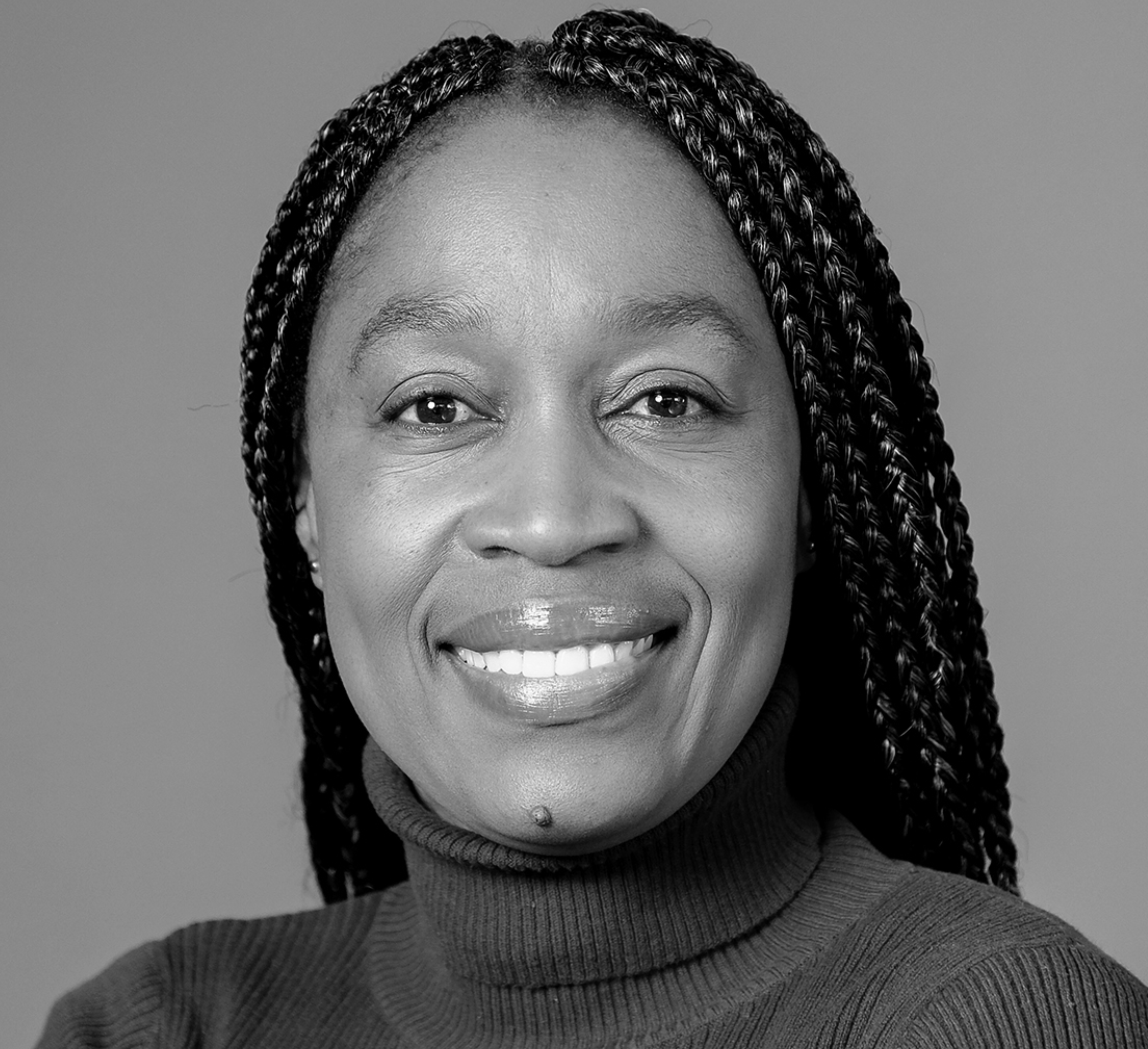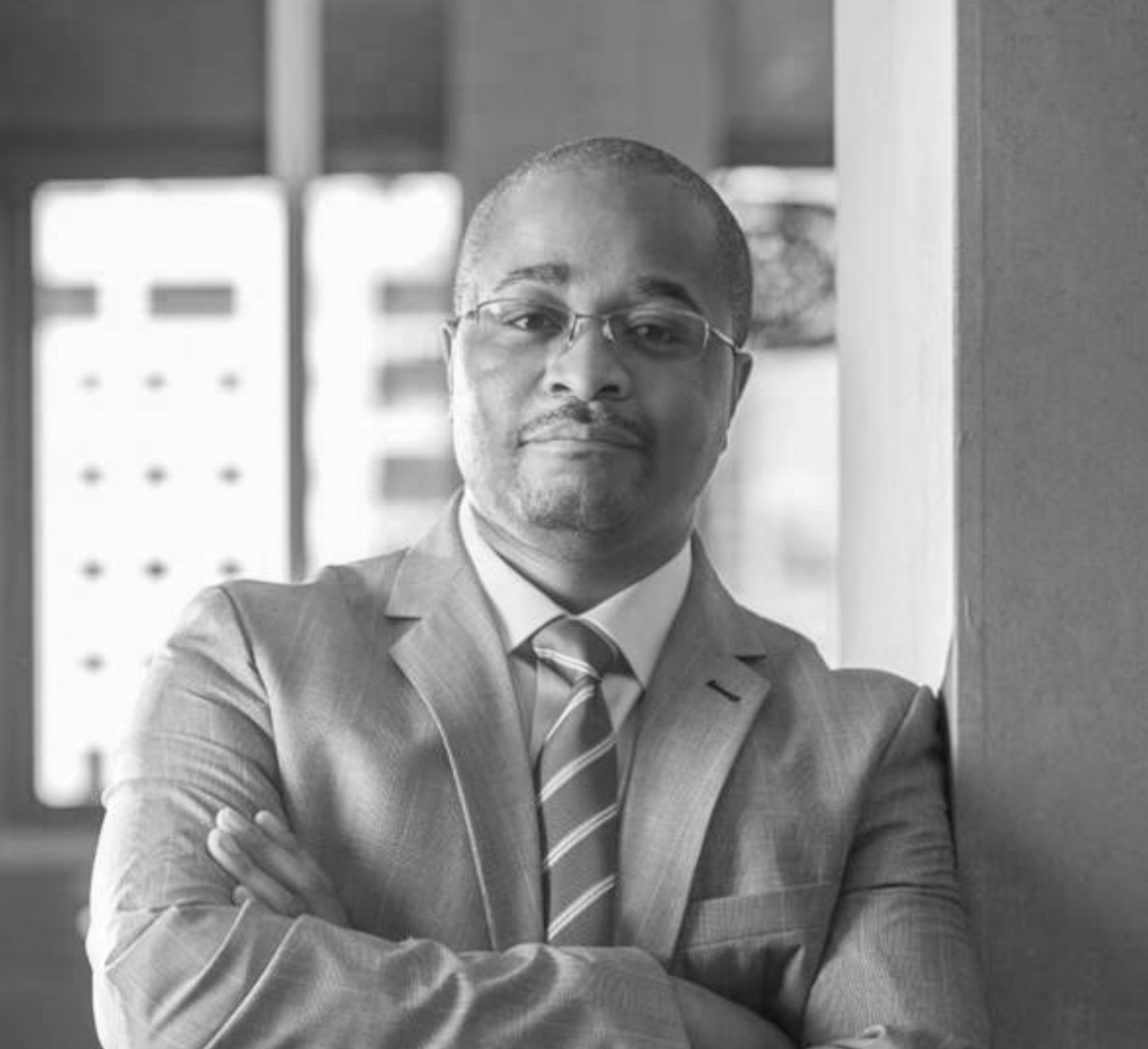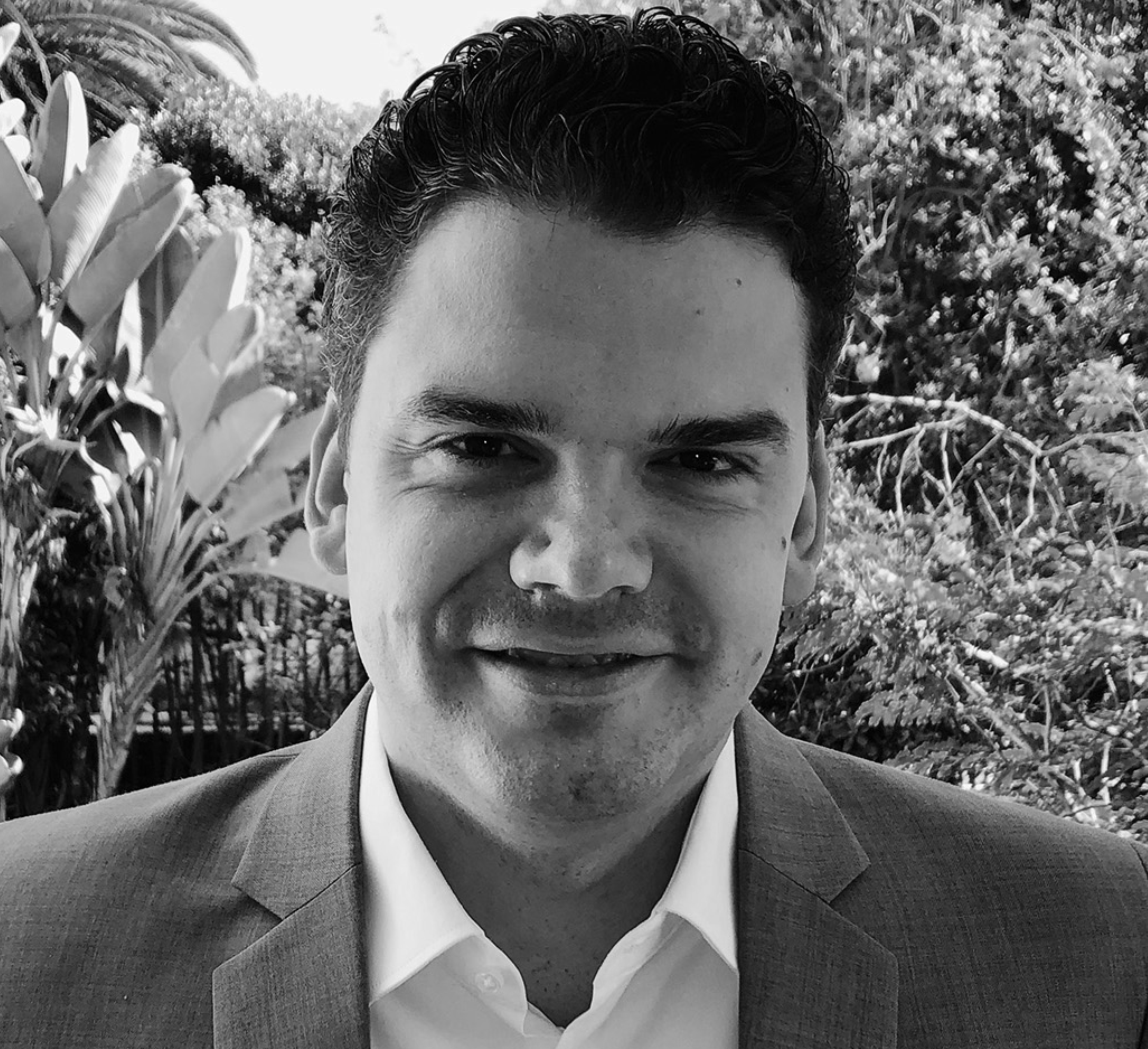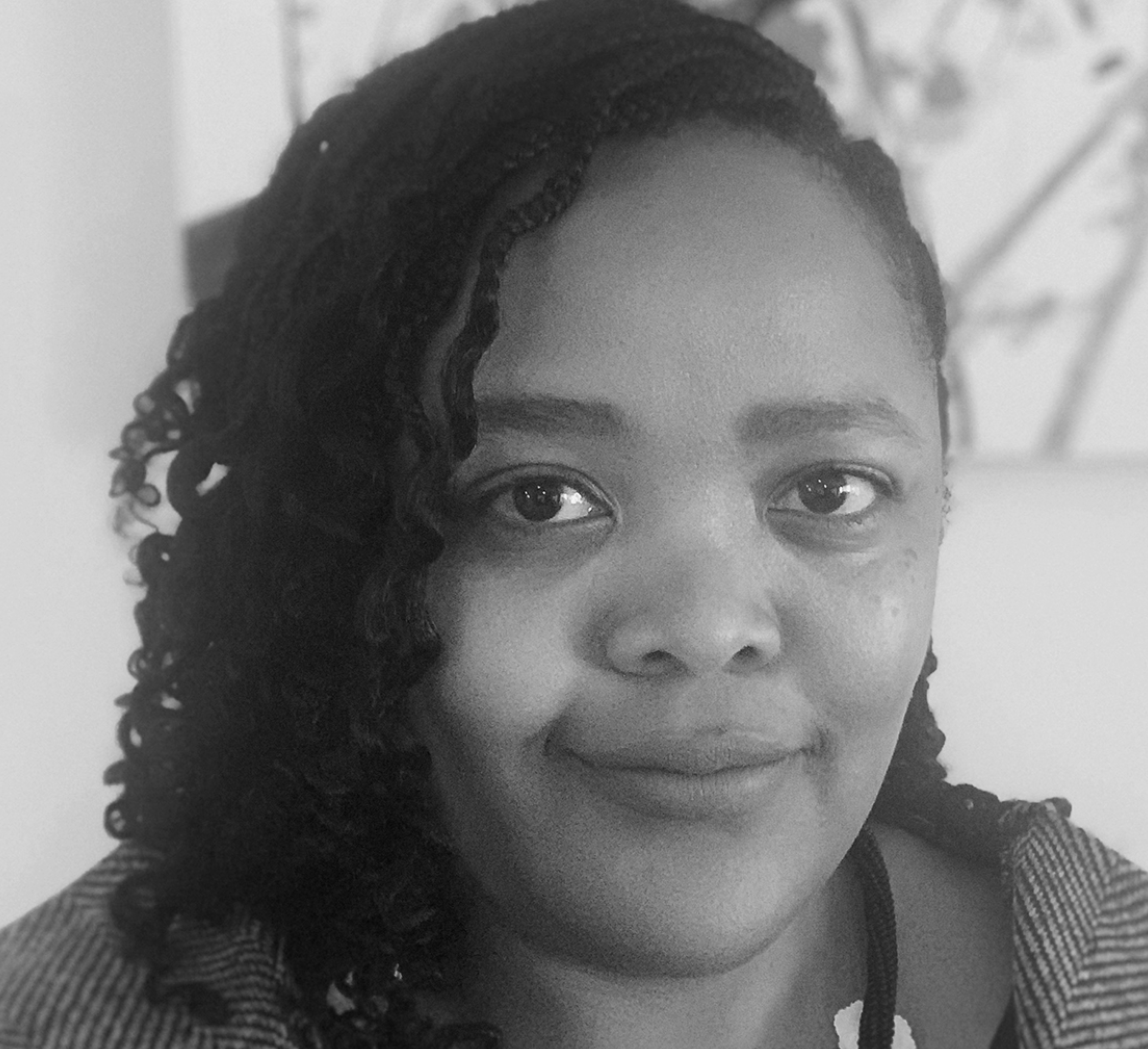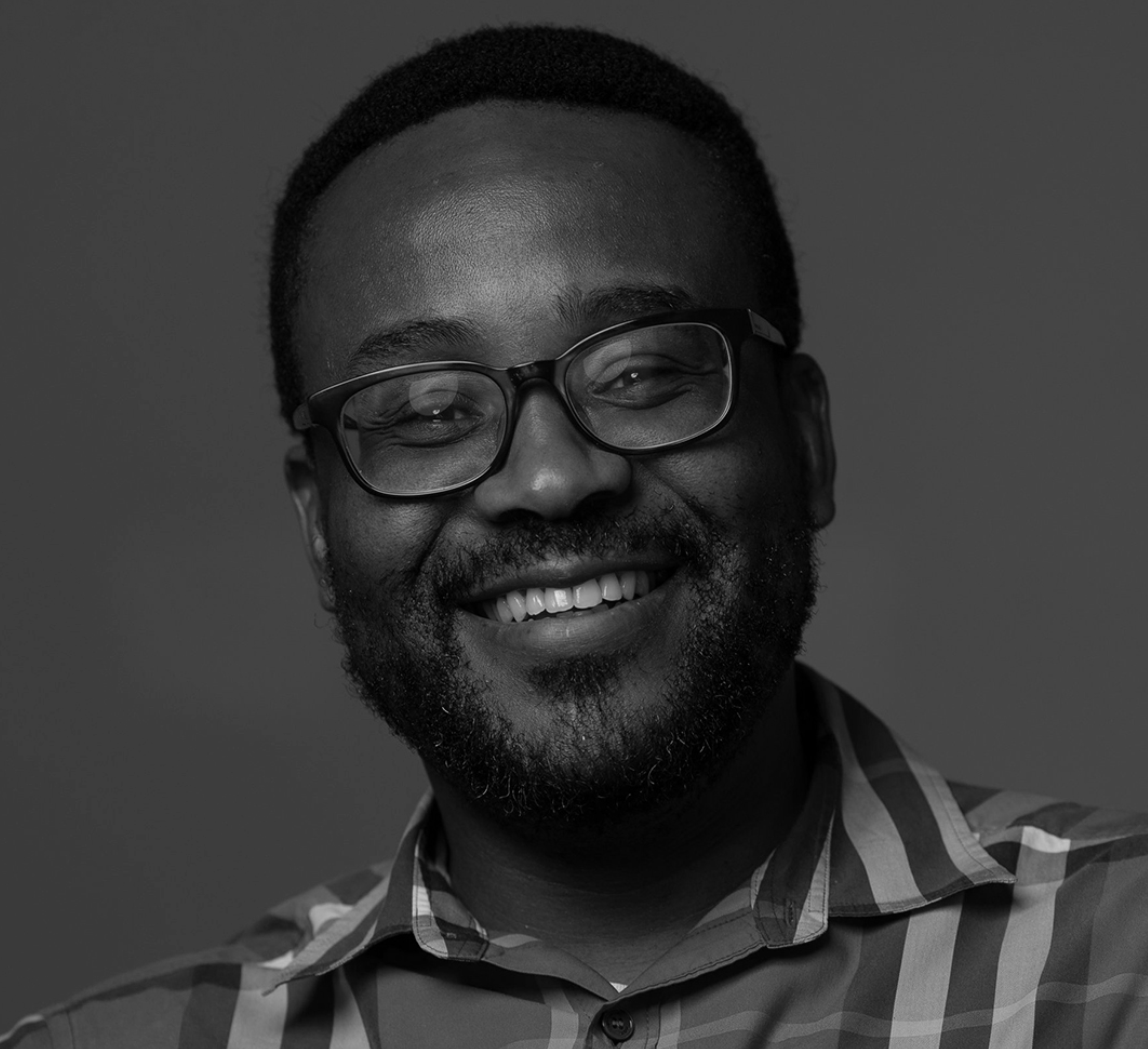81: Dr Linda Ncube-Nkomo
CEO – loveLife
Dr Linda Ncube-Nkomo joins CFO Talks again to discuss gender, race and class in leadership, and she reveals what is driving many women to leave SA’s corporate environment.

CIARAN RYAN: This is CFO Talks and what a great pleasure it is to welcome back
Dr Linda Ncube-Nkomo, who is the CEO of loveLife, which is South Africa’s largest youth health
non-governmental organisation. We last spoke to Linda a few months ago about loveLife, but that was in the relatively early stages of the Covid lockdown. So we wanted to get her back on CFO Talks just to get an update. First of all, welcome back, Linda, how are you?
LINDA NCUBE-NKOMO: I’m doing great, thanks Ciaran, and that was a very, very good pronunciation of my name.
CIARAN RYAN: Yes, it was pretty good, right?
LINDA NCUBE-NKOMO: Yes, just perfect, 100%
CIARAN RYAN: Just to recap, Linda’s a CA who completed her articles in Zimbabwe before moving to South Africa, and she took up a position as CFO for a telecommunications company in Zambia for a period before returning to South Africa, where she now heads up, loveLife. Now, Linda, for those who don’t know, just remind us what loveLife does, and perhaps give us an update on what activities you’ve been involved with in the last several months.
LINDA NCUBE-NKOMO: Like you’ve already said, loveLife is the biggest youth health
non-governmental organisation, but we are a leader in promoting youth health. So that’s our vision is to be able, whenever we’re talking health, to throw in, well, what are you doing for young people, when this is constant, whatever the issue may be. We have got a programmatic focus in what we do. We are funded mainly by government, we’re non-governmental, but we’re funded by government. Our programme areas focus on these three broad areas, one is called healthy lifestyles, and that’s where we’re teaching young people about HIV/AIDS and other sexually transmitted diseases. We’re talking to them about abuse, especially gender-based violence. We’re talking to them about what they should experience when they go to a public health facility because over the 21 years we’ve been in existence, in our early years we realised that young people didn’t like to go to clinics and it was because of the treatment that they got there. So we engaged in with the National Department of Health and said, hey, those facilities need to be catering for young people, not in a judgmental manner, but in a warm, embracing manner that affirms them and takes into cognizant that young people will engage sexually, they’re going to fall pregnant, they’re going to come with STIs, and when they do, we use that as a counselling opportunity, rather than a condemning opportunity. So that’s on the healthy lifestyles, that’s what we do, and obviously in the most recent past, we’re looking also at Covid and trying to make sure that those [indistinct] young people who are living with HIV/AIDS, those who need to access clinics are aware of the fact that clinics are still operational and they can go to a clinic. Then the second pillar that we deal with is called active lifestyles, which is about sport, which is about getting young people in communities to be engaged in sport, to see sport as a potential career path. With the shutdown that was one of the things, obviously, that went straight out of the window because we couldn’t have young people gathering for anything. So how we managed that is we then started to do a lot more on social media. So we’ve continued to do what we do, but using social media as the mode of delivery, as opposed to face-to-face. We would have challenges where we’d get young people to take videos of themselves or of their families doing what they do to keep fit and put them on our social media pages. Pretty much like what’s happening with the Jerusalema Challenge, everybody’s dancing and putting it on social media. We were doing that but for sport and for exercise. Then we’re very much into youth leadership where we train young people, we recruit young people from disadvantaged communities and train them to be the implementers of the programmes that we do and just imparting to them life skills, so that long after they’ve left loveLife they can still remember the things that they’re taught and are able to pass them on. Interestingly, just a few weeks ago, there was a fomer loveLifer who tweeted and asked the question, does loveLife still exist, I remember when I was a young person, there was loveLife near my area, and I learned so many things from them. It was just such a wow moment to be just following this conversation with the young people who are now adults, they are no longer within our age group cohort, and how they’re sharing their experiences and, above all, putting up their hand to be counted, to do what they can in terms of empowering young people, the same way that loveLife, empowered them. So that’s what we’ve been doing in the last couple of months, a lot more on social media, on Facebook, on Twitter, on Instagram, we’ve been engaging a lot on community radio stations and we started a YouTube channel, where we’re trying to do pre-recorded stuff, engaging with young people, just to keep them going while they were trying to navigate this new normal, this unscripted normal, that the whole world is in.
CIARAN RYAN: Are you finding that getting youth active again, getting them outdoors, getting them participating in sports and so on, is that having an impact? Are you able to measure that?
LINDA NCUBE-NKOMO: Not really measuring per se, we would check, the way we would measure it would be to see how many views we got when we posted a certain video. But they have been taking part in the challenges in quite a nice way.
‘There are a lot of black African leaders in top positions, but they are predominantly men’
CIARAN RYAN: One of the things that we did discuss the last time I want to bring up with you now, you have a doctorate from the University of South Africa on gender, race, and class in leadership, as it applies to leadership. I’d be interested to get your views on that very subject. Is there a problem in South Africa around this issue of gender, race, and class in leadership?
LINDA NCUBE-NKOMO: So my doctoral was focused on the experiences of women as regards to gender, to race and leadership in South Africa, and in Zimbabwe actually. So I looked at the two countries and then was comparing the findings for both countries. So if you look at South Africa, you’ll find that in government, the government has got a lot of senior positions that are held by black people in the broad definition of the sense, and the majority of them to be African people. But if you look at the [indistinct] and ask the question, who are those black people, you’re going to find that for most of the time it’s men and not women. During the era of President Mbeki, there was a lot of progress that had been made in appointing women into key positions of leadership. If you can recall, it was under his presidency that we had the only deputy president who was a woman. So if you look in government, you’re going to see there are a lot of black African leaders in top positions, but they are predominantly men. Then if you go into the private sector, again you’re going to see that it’s black men in top leadership positions. The woman who you find in leadership positions, you still have to ask the question, which women are in leadership positions. So when I was interviewing because the methodology that I used for my study was to actually interview people because it’s about experiences, so it’s not just about what the numbers say, it’s about what were your experiences in terms of getting to where you are. So these were senior and executive management women and race and class played a huge role. So they all faced the same challenges in terms of gender, because obviously they’re all women, but when it came to race and social class, I found that white women got an easier deal in climbing the corporate ladder. So they didn’t struggle to get into jobs and once they were there, there was almost a sponsor who would kind of help them to navigate through the rungs of the workplace. Whereas in terms of African and coloured women from disadvantaged backgrounds, in terms of social class, so the ones who came from a poor background, man, they struggled, they really struggled. They struggled to get into a good position, regardless of their qualifications, and once they were in the workplace, they were really at sea because there wasn’t a sponsor. They didn’t know what to do when they were in the workplace, they didn’t know I need to identify a mentor for myself, I need to be visible, my work is not going to speak for me, I need to speak for me and I need to have a senior person speaking for me. So there was a lot of those kinds of stories coming out over and over again. What you found is that for a lot of them who came from the poor backgrounds, they would be the first person in the family who’s gone to university, who’s gone into a corporate and there’s nobody to help them navigate the space. There’s nobody to teach them very basic stuff like what is the appropriate dress code, when you walk into a meeting, carry a notebook and a pen and take down notes, you’re not going to remember stuff. When you don’t know, ask. None of that was happening for them. So those were really the key findings, and across the race, across social class, they all experienced sexual harassment in the workplace. So we’ve got this huge elephant in the room called sexual harassment that’s leading women to exit the formal workplace when they’re not ready to, that’s leading them to be depressed, that’s leading them to be fearful to speak out because the system, in a lot of cases, doesn’t protect them. The system requires them to prove that, oh really, you were sexually harassed, it was an inappropriate comment or an inappropriate touch, and there’s all the evidence that you said no. So it’s all those kinds of subcultures that also exist and affect the ability for women to realise their full potential that’s not hampered by the gender, their race or their social class in which they started. I could go on and on and on.
CIARAN RYAN: I’m interested to find out, it does seem that there are some structural problems there. I’ve seen this from my own experience as well. People coming from a poor background, those very elementary things that you described, what is the dress code, how do you address an email to a boss rather thab to your peers, there’s a different tone in an email like that. All of these little things are not taught in any way particularly and you have to pick it up. As you say, it’s kind of a cultural issue. So these are unwritten and uncodified things that you experience when you go into a company, where you have a young woman coming into an organisation, she might be black or coloured, and what is her support mechanism, who is going to mentor her. There seems to be something missing here, how do we correct that?
LINDA NCUBE-NKOMO: It’s about, first of all, acknowledging that there is something missing, if you don’t acknowledge a problem, you can never fix it. It’s for the workplace to actually take the time, and that’s always shoved into the HR department to look at, but if we’re really going to make serious inroads in some of these things, we need it to be something that sits in the deliverables of the CEO, because once it’s sitting in my deliverables, you can bet it’s going to happen. But if it’s sitting in the deliverable of my direct report and not in mine, it’s not going to get the right focus and the right resources to give it the necessary focus and the necessary changes to be made. So it does need the workplace CEOs to invest in really making sure that they get the best out of every single employee who walks into the door and they capacitate them, and the only way they can capacitate them is to recognise that we’ve got a group of young people, we need to allocate mentors, even if to start off with it’s group mentoring, it’s a start. Then through those group mentoring sessions they can then ask for one on ones with the mentor and be able to then engage on those different problems that can be there. If you look at the corporates that have made real progress in terms of transformation as a whole, it’s where the chairperson of the board really took an interest in seeing the change, where the CEO really took an interest in seeing the change. But if it’s just an exercise to tick a box, because government wants to see our EE stats, we’re never going to make the changes. We’ll have the numbers, but we’re not going to benefit from the quality that is sitting in workplaces, in corners, unnoticed and unheard.
CIARAN RYAN: I think it’s always the case, isn’t it, of when you have a champion who does understand the issue and who takes it on as a personal crusade, then you start to see change. But otherwise it’s a box-ticking exercise and it really just goes in circles.
LINDA NCUBE-NKOMO: Yes, absolutely.
‘When I went to Zambia, I learned that the word deadline does not exist there’
CIARAN RYAN: A curious question here for you, you’ve worked in Zimbabwe, Zambia and in South Africa, I’m just interested to find out about what is it you liked about working in Zimbabwe and Zambia, that just for people who may be overseas, what really were the standout things about those countries as somebody working and living there?
LINDA NCUBE-NKOMO: Zimbabwe, well, I’m a Zimbabwean national, so that was home. Working in Zimbabwe was still in the early days of my career, so junior to middle management. But I can tell you what I got there was the work ethic, it was an impeccable work ethic. You were surrounded by high performers, which forced you to be a high performer yourself. It wasn’t…South Africa is highly pressurised but talking about Zimbabwe, we are going back 17 to 20 years when it wasn’t what it is now. So the pressure wasn’t as bad as it is in Joburg. You cannot compare the traffic in Harare to the traffic in Joburg, for example. So it was easy to have a work-life balance there. Zambia, what did I enjoy about Zambia, now, the work ethic was the total opposite, and after my work experience – I always share the story – of how when you work in Zimbabwe, the narrative you always hear is that South Africans are lazy, they’re entitled and they don’t get things done and so on.
But then when I went to Zambia, I learned that the word deadline does not exist there. I always tell the story where we had to submit a budget through the head office, which was here, and it was three days before the budget needed to be submitted, so you can imagine the pressure that’s there, and I’m the CFO and it’s my first budget exercise, and I want to see the numbers almost on a three hourly basis so that we really make sure that we thoroughly interrogated the numbers. So I went to look for the management accountant because it had been like a whole morning and I hadn’t seen him, and I need to know where the numbers are, and he wasn’t at his office. Something just said to me, look under his desk, and I looked under his desk and he was sleeping under his desk. He wasn’t sleeping because he’s totally burnt out or anything like that, he was sleeping because it’s lunchtime and at lunchtime I must get a one-hour break. I always tell the story but when I came back I had a totally different view of what a poor work ethic looks like because in South Africa and in Zimbabwe if its budget time you are not even going to be thinking about taking a one-hour lunchbreak, it’s too long, you are going to eat your lunch as you are crunching through the Excel spreadsheets. So I always tell that story and that I found it very frustrating because I was coming from Zimbabwe where there’s high performance, I’m coming from a corporate in South Africa, high performance, and I’m now in an environment where people sleep at lunchtime, the frustration drove me crazy.
CIARAN RYAN: Interesting, so in Zimbabwe there’s a high work ethic. I think the other thing I would just add to that about Zimbabwe is the problem-solving capability of Zimbabweans is world-class, it is legendary. When you are having to function when you don’t have power maybe eight hours in the day, you really do develop a unique set of skills, would you agree with that?
LINDA NCUBE-NKOMO: Like I say, I left Zimbabwe almost 17 years ago, so it was a bit more functional than what it is now. But I find that people are constantly adapting all the time. I don’t know if it’s good or whether it’s kind of like the boiled frog soup, where you put a frog in cold water and you just turn up the temperature, it will adjust instead of jumping out. But Zambia had similar challenges with power, and I believe that they’re also at the same level as Zimbabwe. In my house in Zambia I had to have a generator because the power went out every single day.
CIARAN RYAN: Just a couple of quick questions. So the lockdown has been a challenge, obviously, we discussed that the last time, but are you managing to keep your teams motivated, how are you managing with this lockdown thing?
LINDA NCUBE-NKOMO: For us, during the first 21 days we were all totally under lockdown because we didn’t know what’s happening, we didn’t know what to expect and so on, and people were working from home. After the first 21 days, we run a psychosocial contact centre that’s telephonic, so we made a decision that with the reports that we were getting about people slipping into depression, the counsellors, the psychologists, the social workers needed to come back to work.
So they’ve been back at work since mid-April or so. With regard to the rest of the team, we’ve been doing a lot of our work remotely because we’re also trying to be cognizant of the fact that there are single parent households who have got children at home. So if we insist that people must be physically in the workplace and the children are not being catered for, we actually will have a body in the workplace and not a mind. So we have opted that as far as possible, we are going to be letting people work from home and obviously manage the deliverables rather than the working hours, so that they can be able to balance their work commitments and also meet their responsibilities as parents. We’ve managed to also adapt to the way in which we deliver our programmes, like I said earlier on, so with a lot of our work being done on social media and through radio programmes on community radio stations, I think we’ve been able to make the adjustments to make sure that we continue to be relevant to our young people and to engage with them in the way that they’re currently engaging with each other, which is predominantly through social media.
‘When you work with young people, they’ll always motivate you’
CIARAN RYAN: You were optimistic the last time we spoke when we were pretty much midway through the lockdown, are you still optimistic?
LINDA NCUBE-NKOMO: I think I’m the eternal optimist. What’s hit me and made me feel very low around this whole Covid situation is the R500 billion story in South Africa that has broken my heart totally because the question I keep asking myself is, how did we get here?
CIARAN RYAN: Just explain for people who are not South African, what that means.
LINDA NCUBE-NKOMO: What that means is that there was a R500 billion Solidarity Fund that was supposed to just help with Covid initiatives, whether it’s provision of personal protective equipment and gear, whether it is providing food to disadvantage households, and that money has been looted. That, for me, is such an integrity issue, it’s such an inhuman thing to be able to do. That somebody who is in employment, would take food out of the mouth of a person who’s not employed, that has really broken my heart. If Covid has dented me in any way it has been in that respect. But with regard to my young people, when you work with young people, they’ll always motivate you. We’ve got young people preparing for matric and we’ve been blessed to be working with the Nelson Mandela Foundation and the Old Mutual Foundation to just be able to support these young people through social media. I talked about us having psychosocial contact centre and, man, they are just getting on with it. So I’m optimistic that we’re going to get through this. I’m optimistic that our matriculants, who are writing their high school year-end exams, are going to get through this, and I’m optimistic that the world as we have known it is not coming back in that format and we’ve had the opportunity to evaluate what matters, and we dare not forget about what matters, which is our families, which is our health, which is being able to touch another person and give them a hug. Just being able to realise how those small things, seemingly small things, are actually the most important that we have.
CIARAN RYAN: I think that’s an incredibly positive note on which to end, Linda. Always, as usual,
fantastic to talk to you, what an inspiration. Thank you for the work that you’re doing, it is so vital to the country and to the wellbeing of the country. I wish you the very best, let’s stay in touch.
LINDA NCUBE-NKOMO: Thank you very much, Ciaran. It was really great chatting to you, and you take care of yourself.

